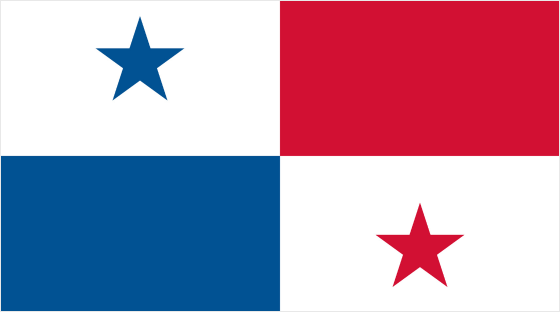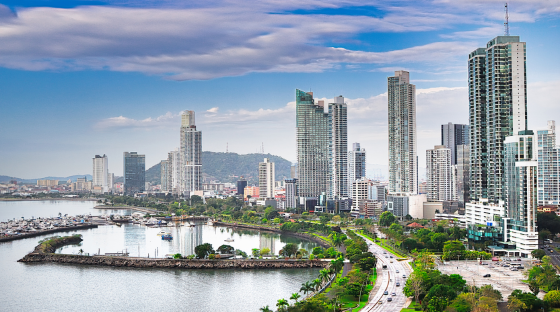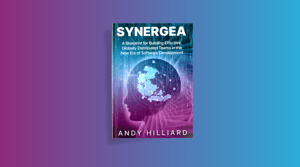Panamá

Overview
One of the world’s fastest-growing economies, this Central American powerhouse is a multinational business hub of immense strategic importance, thanks to the Panamá Canal, and has close ties with the US. Modern infrastructure and government support through tax incentives, plus an overlapping time zone, make this an attractive outsourcing destination.
A major recipient of foreign direct investment in Latin America, Panamá has focused on diversifying its economy, particularly in the services sector, and continues to draw investment through its market-friendly policies and dollarized economy. Before the pandemic, it was the fastest-growing economy in Latin America, with average real GDP growth of 6%. It also has a strong banking sector compared to its peers.
Among the most biodiverse countries in the world, Panamá has a stunning array of tropical species and is home to some of the most pristine and well-protected ecosystems on the planet, resulting in a budding ecotourism industry. Almost a third of the country has been designated by the government as national parks, wildlife refuges, tropical forest reserves, or protected indigenous lands. Panamá also produces some of the world's finest – and most expensive – coffee.
The Accelerance Global Network is the most curated list of high-quality global teams ever assembled.
200
Developers
Total number of developers in our certified partner network by country
2
Certified Partners
Total number of certified partners in our global network by country.
5.5hrs
Time Travel (From NY)
Average flight time from NY to the major cities in the country.
82
Partner Innovation capability
The score reflects investment in STEM progrms and IT funding by country.
85
Partner Skill Level
Level of workforce skills and quality of education, including factors such as digital literacy, interpersonal skills, etc.
77
Partner Global Competitiveness
National productivity based on 12 core pillars, including government policy, infrastructure, economic stability, etc.
High
Software Outsourcing Readiness
Overall rating, based on the maturity of the tech sector, socio-political conditions, and on-the-ground research by Accelerance.

Talent Pool & Education
State-backed growth in the IT infrastructure has made Panamá an attractive option for building a capable and cost-efficient remote workforce. In 2023, the establishment of two new free zones was authorized, the Tech Valley Free Zone and Panama Digital Gateway, to increase the strategic potential of the country as a digital hub in the region. A new generation of entrepreneurs is emerging in the tech sector, supported by public initiatives and academic centers such as the Technological University of Panamá.
Through its close relationship with the US, Panamá has developed a work culture that Western businesses find compatible. A non-profit Innovation Center at the Ciudad del Saber (City of Knowledge), a government-sponsored cluster of academic organizations, technology companies, and non-governmental organizations, features an investment program for startups and an entrepreneur network for women.
Rising demand for tech skills is putting pressure on the country’s limited talent pool, exacerbated by the lure of higher salaries offshore. To help increase the number of students pursuing careers in science and technology, teachers at selected schools are being given special training with a focus on educational robotics through Fundesteam, an independent organization that operates across Latin America.
Language
The official language is Spanish but many Panamanians are bilingual and speak fluent English – thanks, in part, to the legacy of the Panamá Canal. The project was carried out by the US and during the construction period, English was the official language of the Canal Zone. Today, English is relatively widely spoken, particularly in Panamá City and along the Caribbean coast, and by professionals in the commercial or government sector.

Economic Outlook
Panamá was hit hard by the pandemic, but the recovery has been strong. The Economist Intelligence Unit expects the economy to grow more quickly than the Latin American average in the 2024-28 forecast period, driven by its services-led, export-oriented model, which is anchored by the country's role as an international logistics hub as home to the Panamá Canal. Unemployment has declined and average inflation remains well below other countries in the region. However, the closure in December 2023 of Cobre Panamá, Central America's largest copper mine, will do significant damage. The mining operation, which represents nearly 5% of GDP and around 75% of the country’s exports, has contributed to the nation’s post-COVID economic recovery and generated some 40,000 jobs.
Panamá’s constitution declares all mineral deposits the property of the state, to be extracted only by concession. A new contract with the mine’s Canadian operator, negotiated without the public’s knowledge, was declared unconstitutional after volatile demonstrations swept across the country. Whether a new deal emerges will depend on the outcome of the general election in May 2024. No candidate has signaled concrete plans for tax reform to overcome spending trade-offs and anti-Government protests over the past two years highlight a difficult backdrop for corrective fiscal measures.
Political Conditions
Jose Raul Mulino, a pro-business right-wing politician, won a decisive victory in the presidential election in May 2024 with 34.2% of the vote, well clear of his nearest rival, lawyer Ricardo Lombana, who received 24.6%.
Former president Ricardo Martinelli, once considered the frontrunner before his failure to overturn his conviction for money laundering, endorsed Mulino from Nicaragua's embassy in Panama's capital, where he sought asylum. Many voters saw Mulino as a proxy for Martinelli, a populist who oversaw a period of massive infrastructure projects in the country, including the construction of the capital’s first metro line.
Muliuno, who served as interior and security minister during Martinelli's administration from 2009 to 2014, said his government would be pro-investment and pro-business and would honor its debts, but also not forget the poor. He faces a daunting task of mending social divisions and regaining the faith of an electorate fed up with political graft.
Learn more about our customer stories.
Looking for a customer story in a specific technology or industry? Discover compelling customer narratives within a specific technology or industry that resonate with your unique software development needs.


.png?width=300&name=Copy%20of%20WEBSITE%20Stop%20Chasing%20Low%20Hourly%20Rates%20Unlock%20the%20True%20Value%20of%20Offshore%20Development%20(450%20x%20253%20px).png)



